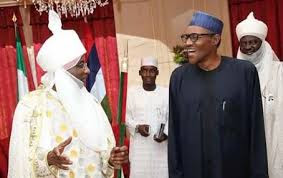By Arthur Agwuncaha Nwankwo
It is indeed interesting to see so many Nigerians today talking
about restructuring the Nigerian state. This is heart warning on account of the
fact that today we have come to appreciate restructuring as a necessity for
Nigeria’s continued existence. This is a crusade I began almost two decades
ago; a crusade that has taken me to prison and back.
 |
| *Dr. Nwankwo |
In the course of this crusade, I have had my younger brother
brutally murdered in cold blood by agents of the state; I have had my residence
turned inside-out by security agents brooding over my massive library like
maggots rummaging the remains of decaying carcass. I have been cursed and
discussed; scandalized and analysed. The leeches of the Nigerian state are mad;
and I am happy. The struggle rages on and that’s just the way I love it. My
happiness is that my crusade has put Nigeria
Even though it is a welcome development that we have been caught
by the bug of restructuring, I am afraid not so many of us understand the true
essence of restructuring. I say this because in recent times I have heard
people talk about merging of states as a form of restructuring. I am afraid
this is not restructuring by any stretch of the imagination.
The question is: What type of restructuring doesNigeria Nigeria Nigeria
The question is: What type of restructuring does
For now there are six
geo-political zones in the country. These geo-political zones should be
constituted into the federating units with equal constitutional rights. The
states as presently existing make up the zones.
Each zone will have its own constitution, which must not be in conflict with the federal constitution. The federating units should be in-charge of the zones and LGS. The States’ Houses of Assembly will remain as they are but there will be Regional Houses of Assembly that will function as the highest legislative organ of the region.
Each zone will have its own constitution, which must not be in conflict with the federal constitution. The federating units should be in-charge of the zones and LGS. The States’ Houses of Assembly will remain as they are but there will be Regional Houses of Assembly that will function as the highest legislative organ of the region.
















